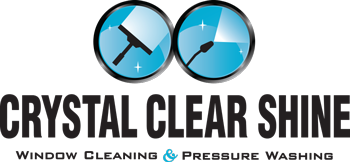How Residential Pressure Washing Works
While there’s no magic wand that instantly banishes mildew, dirt, and grime from your home, pressure washing is an effective way to keep surfaces clean. But it’s important to understand how and why it works before you attempt the task yourself.
We put two models of pressure washers through their paces and gathered insights from our expert reviewers to help you make the best choice for your next project. Learn more by clicking here.
Safety
When operating a pressure washer, safety is always top of mind. Before beginning any cleaning, make sure to shut off the power to any appliances or outlets in the area you’re going to use it (water is a good conductor of electricity). Also, wear close-toed shoes and pants to protect your feet and legs from any accidental pressurized spray. Lastly, make sure to test the machine in an inconspicuous area first to ensure it is working properly and at the correct PSI.
In addition, it’s essential to remove any furniture or other objects from the area you plan to pressure wash so that it doesn’t get damaged by the water jets. Also, remember that highly pressurized water can cause damage to certain materials, including wood decks and siding (especially if the paint is old or contains lead), so be cautious not to shoot too much water at surfaces you don’t want to damage. Likewise, wearing goggles or safety glasses is recommended to prevent dirt and grit from blowing back into your eyes as you operate the machine.
Preparation
Pressure washing removes dirt and debris, allowing a home or business to look newer. However, it can also damage surfaces if the right steps aren’t taken.
The most important thing you can do to prepare your property is to keep children and pets away from the area being washed. They can become tripped over or sprayed by the powerful water and can even get injured by the high levels of force.
You’ll also want to move any decorative plants you value away from the areas that will be sprayed. Plants can also get damaged by the hose being drug over them or by the powerful spray. You should also close your windows and doors and cover any outlets, doorbells, or light fixtures. Covering them with tarps or plastic and duct tape can prevent water from entering your home and possibly damaging these items. You may also want to shut off electricity in the area that will be sprayed.
Equipment
You need a pressure washer with enough power to tackle grime and dirt. But you also need a variety of other equipment like ladders, hoses, surface cleaners, and specialty nozzles to get the job done. In addition, you need a truck or van to transport your equipment to each job site. And don’t forget the business insurance, licensing, permits, and other startup costs.
Creating a business plan can help you figure out your scope of services and prices. Some banks and lenders will want to see one before they lend you money.
Whether you’re a solo operator or hiring employees, you’ll need the proper licensing, insurance, and permits to offer your pressure washing services. Also, make sure to give your company a unique name and buy a matching domain. Using software to manage scheduling, time tracking, and communication can help streamline your operations and reduce errors. And last but not least, you’ll need to invest in marketing your business.
Water
Pressure washing is a great way to clean your home or business and get rid of dirt, mold, mildew, and old paint flakes. It can also enhance the value of your property. However, many people are concerned about the amount of water used when hiring a professional to power wash their home or business. Will it cause a huge increase in their water bill?
The good news is that pressure washers use less water than a garden hose and do not impact your water consumption. The cost of water varies from region to region but in most areas, it is less than a penny per gallon.
Most professional pressure washing companies have large tanks they use to haul water for cleaning jobs. Oftentimes, it takes them hours to finish a house, and may have to leave your property and return to refill their tank. This can make your job take longer and cost more money. Definitely worth checking out!
